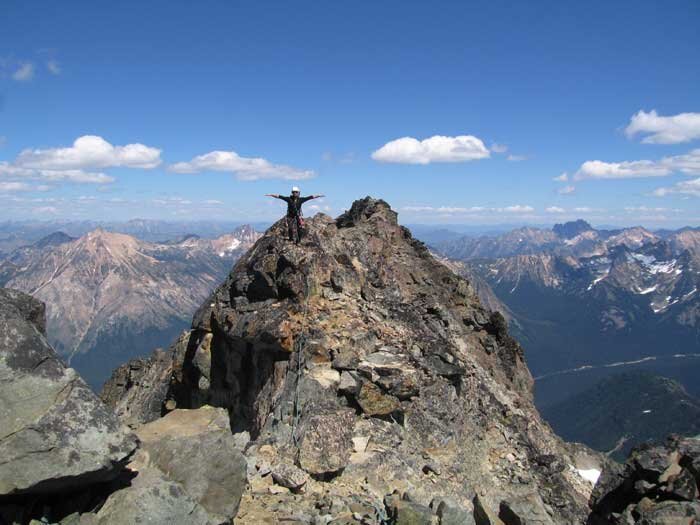Get out and go deep
“The smaller we come to feel ourselves compared to the mountain, the nearer we come to participating in its greatness.”
Arne Naess
At this moment, reading these words, chances are that you’re indoors. Even if you’re reading on a tablet or similar device, you’ve probably got a roof over your head and walls around your body. This, after all, is where most of us live now. With the building boom of the last few thousand years, we’ve enclosed a large proportion of our planet’s real estate and turned our indoor spaces into what we thought would be a utopia for our bodies. No longer assaulted by the forces of nature, protected from temperature extremes, precipitation, predation, wind and darkness, we thought we would be living our lives in a state of health and happiness.
But we got it wrong. In fact, indoor living has turned out to be a mixed bag at best and a catastrophe at worst. Indoor living breeds a host of pathogenic conditions, afflictions and behaviors: passivity, sedentary lifestyles, sensory distortion and deprivation, social disruption, stress, depression and cognitive overload. Our bodies, sculpted by thousands of generations of natural selection in wild, outdoor environments, are now falling into a state of chronic, epidemic lifestyle disease. Experts point their fingers at trans fats, high-fructose corn syrup, and a host of other disease-causing agents, but we’d be fools to overlook the simple fact that we no longer live in our ancestral environment. We are, in a very real sense, living in a self-constructed alien world.
Winston Churchill had it right when he said, “We shape our buildings, and afterwards our buildings shape us.” Today our bodies are shoehorned into increasingly narrow confines; we “live” in a state of self-imposed incarceration that is a threat to both individual and public health. Indoor living distorts our circadian experience of light and dark, forces us into chronic inactivity and isolates us from the very forces that heal us and keep us whole. It is no exaggeration to say that dwellings, office buildings and other indoor spaces have become “the new tobacco” of the modern world. Staying indoors is “the new smoking.”
Obviously, we need to get out, as often as we possibly can. Our bodies desperately need natural light to synchronize our physiology. Our hearts and legs need movement, especially vigorous movement over diverse, uneven natural surfaces. Our skin needs tactile sensation and contact with rocks, plants, water. Our immune systems need dirt and microorganisms to practice on. And most of all, our spirits need to see and experience the magnificence of the biosphere in all her exuberance.
Black Peak, North Cascades
So now, as we swing into a new season of long and glorious days, many of us will actually be leaving our cubicles, venturing outside into the natural world. We’ll head for the mountains, the beach and the countryside. We’ll load up our cars with our toys, our gear, our sleeping bags and our friends, ready to feel the sun on our faces.
It’s all good, this seasonal getting out and, given the extent of our self-imposed incarceration, any reason to get out is a good one. But sadly, many of us are missing the larger and more powerful potential of the natural world. For many of us, the outdoor world of summer is just an over-sized theme park, a Disneyland for our amusements, our sports and our leisure. We picnic and party, but fail to live the full splendor of this opportunity. After long years of imprisonment, many of us are afflicted, not just with a “nature-deficit disorder,” but with a sense of amnesia about our relationship with the world.
What we really need is something more intimate and substantive. We need to get out, not merely because the weather’s nice, but because the experience puts us back into contact with a grand biological and human drama that’s literally millions of years old. In this sense, going outdoors becomes something far more interesting than simply getting a tan or finding a good mountain bike trail. Instead, this is a way to get our minds and spirits reconnected with our natural and human heritage.
So when you’re out, engage your Paleolithic imagination. Get the whole picture: You’re naked, hungry and exposed to the world. You’re moving at the speed of habitat; no faster, no slower. There’s no calendar, no clocks, no names of for the days of the week. Navigation is entirely by sensation. You know this land by sight, by touch and by the feel of the ground through your bare feet. Every cell in your body participates in knowing this land. Nuance and subtlety are what keep you alive: the slightest shift of the wind, a tiny drop in temperature, a whisper of sound in the trees, a feel in your guts. Your body doesn’t just live on the earth. It lives in the earth. Your body is embedded in the biosphere.
Go outside and feel it.
